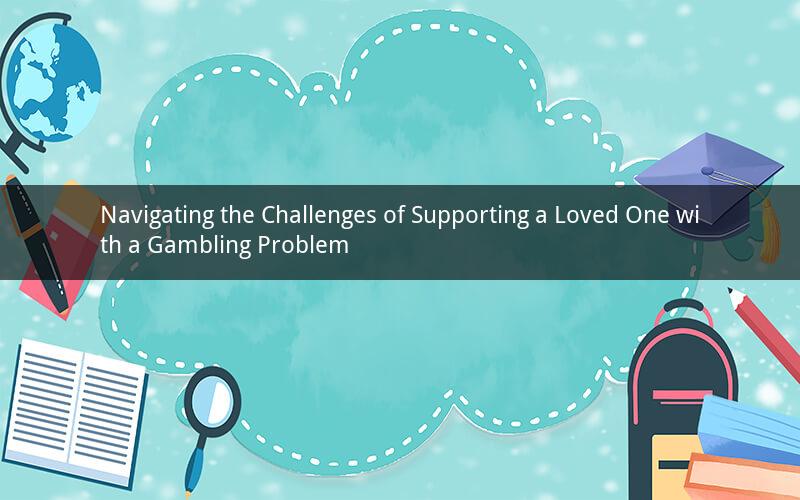
Introduction
Identifying and helping someone with a gambling problem can be a daunting task. Whether it's a friend, family member, or colleague, the journey to recovery can be complex and emotional. In this comprehensive guide, we will explore the various ways you can offer support, understand the signs of gambling addiction, and provide resources to help those struggling with this issue.
Understanding Gambling Addiction
Gambling addiction, also known as problem gambling, is a serious condition that can have far-reaching consequences. It's essential to recognize the signs and symptoms to effectively assist someone struggling with this addiction.
Signs of Gambling Addiction
1. Increased Time Spent Gambling: One of the most apparent signs of gambling addiction is spending an excessive amount of time engaging in gambling activities. This can lead to neglecting other responsibilities, relationships, and hobbies.
2. Financial Struggles: Problem gamblers often experience significant financial difficulties due to their gambling habits. They may borrow money, hide debts, or even commit fraud to fund their addiction.
3. Emotional and Psychological Effects: Individuals with gambling addiction may exhibit signs of stress, anxiety, depression, and mood swings. They may also become increasingly secretive and defensive about their gambling habits.
4. Social Consequences: Problem gambling can lead to strained relationships, as gamblers may become more isolated and distant from loved ones. They may also experience job-related issues due to their gambling addiction.
How Can I Help Someone with a Gambling Problem?
1. Educate Yourself: Understanding the nature of gambling addiction is crucial for providing effective support. Learn about the signs, symptoms, and treatment options available to help your loved one.
2. Encourage Them to Seek Professional Help: Encourage your loved one to seek help from a mental health professional or a gambling addiction counselor. They can provide the necessary guidance and support for recovery.
3. Offer Support and Understanding: Be a supportive presence in your loved one's life. Offer a listening ear and a shoulder to lean on. Avoid judgment, criticism, or enabling behaviors that may hinder their recovery process.
4. Educate Yourself on Self-Care: Taking care of your own mental and emotional well-being is equally important. Seek support from friends, family, or support groups for individuals affected by gambling addiction.
5. Encourage Participation in Support Groups: Encourage your loved one to join a support group such as Gamblers Anonymous. These groups provide a sense of community and a platform to share experiences and coping strategies.
Resources for Gambling Addiction
1. Gamblers Anonymous: Gamblers Anonymous is a fellowship of individuals who share their experience, strength, and hope with each other, so they may solve their common problems and help others to recover from their gambling addiction.
2. National Council on Problem Gambling: The National Council on Problem Gambling offers a wealth of resources, including a helpline, support groups, and educational materials.
3. Counseling and Therapy Services: Mental health professionals specializing in gambling addiction can provide individual or family therapy to help those struggling with this condition.
4. Financial Counseling: For those dealing with financial consequences of gambling addiction, financial counseling services can help develop a plan to manage debt and restore financial stability.
5. Legal Assistance: In some cases, legal assistance may be necessary to address the consequences of gambling addiction, such as property loss or criminal charges.
Frequently Asked Questions
1. Question: How can I tell if someone has a gambling addiction?
Answer: Look for signs such as increased time spent gambling, financial struggles, emotional and psychological effects, and social consequences.
2. Question: What can I do if I suspect a loved one has a gambling addiction?
Answer: Educate yourself on the signs and symptoms of gambling addiction, offer support and understanding, and encourage them to seek professional help.
3. Question: How can I help a loved one who is struggling with a gambling addiction?
Answer: Be a supportive presence in their life, encourage them to seek professional help, and educate yourself on self-care.
4. Question: Are there any support groups for individuals affected by gambling addiction?
Answer: Yes, Gamblers Anonymous and the National Council on Problem Gambling offer support groups and resources for individuals and their families.
5. Question: Can gambling addiction be treated?
Answer: Yes, gambling addiction is a treatable condition. Treatment options may include therapy, support groups, and financial counseling.